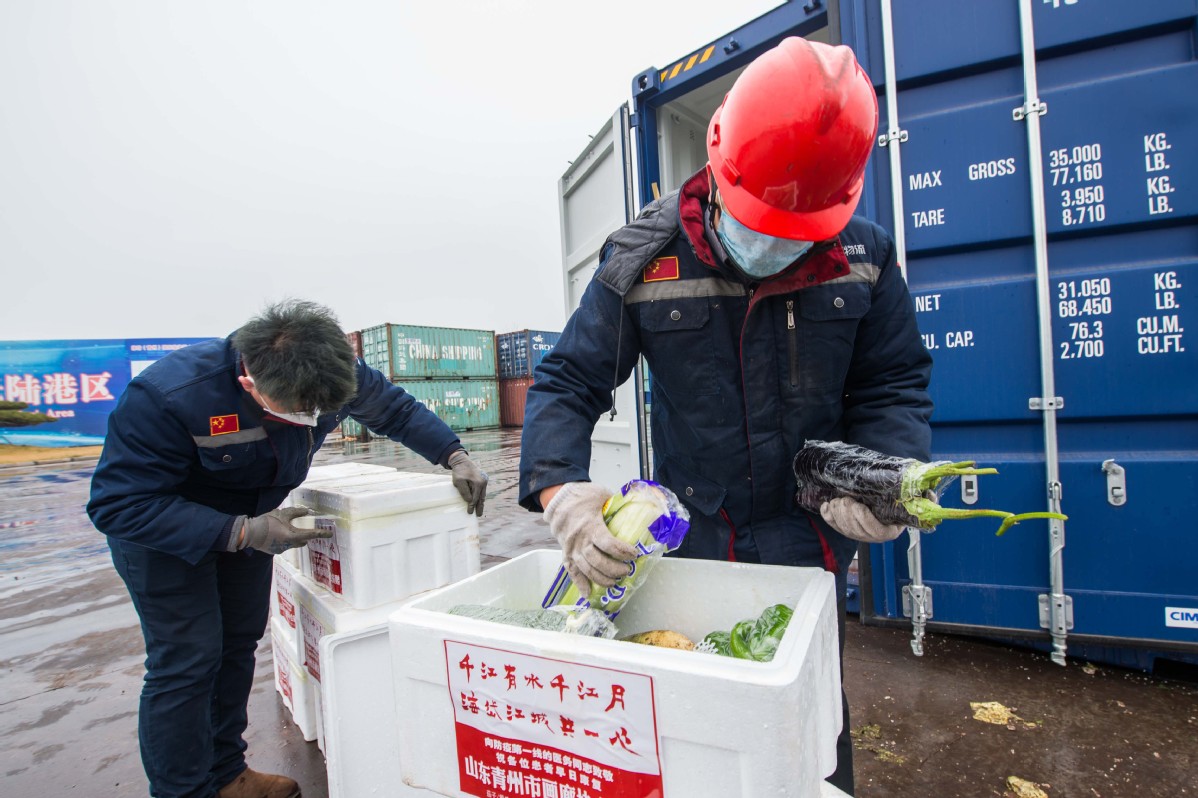Nation rallies to satisfy Hubei's appetite


Shouguang, a county-level city in Weifang, Shandong, is producing a rich variety of vegetables amid the outbreak thanks to the wide use of technology.
One of the country's major vegetable production bases, it provides one-third of those consumed in Beijing, while Lanling, known as the "home of garlic", provides half the vegetables consumed in Shanghai.
Vegetables have been sent to Wuhan from Shouguang since Jan 28.
Qiao Risheng, the deputy mayor of Shouguang, is impressed by the quick and efficient response from local farmers and the owners of vegetable businesses in selecting the first produce donated to Wuhan.
After receiving orders for vegetables to be sent to the city on Jan 27, the Shouguang government mobilized markets, agricultural parks and farmers to select fresh supplies and to complete quality inspection, packaging and loading overnight. Next day, the vegetables were sent to Wuhan by 15 trucks.
"We spent 16 hours packaging 300 tons of vegetables, a task that usually takes 48 hours," Qiao said.
"When we asked for volunteers prepared to drive for nearly 20 hours to transport the vegetables, many drivers offered their services. They felt they had to help Wuhan out."
Intelligent management systems have been used widely during the outbreak to save labor.
Zhang Haibo, who is in charge of a tomato greenhouse at a modern agricultural park in Tianliu, a town in Shouguang, said, "For this greenhouse, I only need one or two people to tend the tomatoes, which can substantially avoid cross-infection."
Shandong, which lies some 1,000 kilometers east of Wuhan, has activated emergency plans to increase supplies of fresh vegetables to support demand in Hubei and elsewhere in the country.
As the nation's largest production and trading area for vegetables, Shandong has long supplied major cities, especially in autumn and winter, thanks to greenhouses, which are used widely throughout the province.
Between Spring Festival and March 3, Shandong sent 7,060 tons of green vegetables to Hubei, and it has also transported 107 tons of pork and 2,498 tons of poultry to the province.
Shandong produces 47,000 tons of flour, 20,000 tons of edible vegetable oil, 52,000 tons of vegetables and 9,300 tons of eggs every day, according to the provincial Agricultural and Rural Affairs Department.
It also has 92,000 tons of pork stocks and a poultry inventory of 412,000 tons, sufficient to meet demand.
According to the Ministry of Transport, from Jan 27 to Feb 28, more than 541,300 tons of daily necessities and 1.18 million tons of other commodities, such as coal and petrol, were transported to Hubei from around the country.























